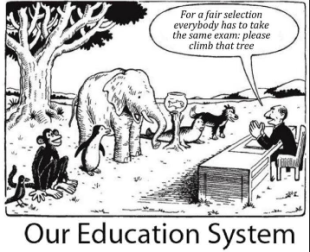Eds 113 – Final Note
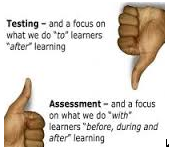
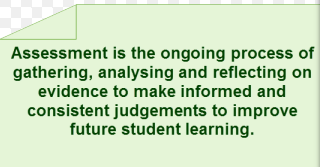
Testing and Assessment – little did I know that these two words are not synonymous to each other. Testing is what is given to students to be able to arrive at a grade to be written in the report card which then determines if they advance to the next grade or not. The student is always the recipient of knowledge and should be able to demonstrate the knowledge learned by doing good on tests.
Now, it is clear to me that assessment entails a lot more than tests and grades. It involves a systematic way of gathering evidences to see if the intended learning outcomes have been achieved. It also serves as a feedback both for students to see how they have mastered the course and as a feedback for teachers as it will provide them with data to see if their teaching methods are effective to optimize student learning.
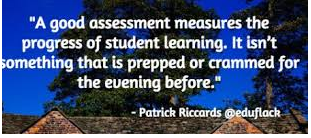
With these realizations, it is now very important that assessments should be planned and created with the sole purpose of optimizing student learning. This means that assessment should not just be to ensure accountability as it happens in Assessment Of Learning but rather making sure that the purpose is to improve the learning and that this is ongoing, collaborative and fluid.
“If we always do what we’ve always done, we will get what we’ve always got.” – Adam Urbanski
Now, fortunately, different studies have been made and are still undergoing, all geared towards having a holistic type of assessment where there is an emphasis on the formative purpose of assessment and at the same time making sure that students are able to attain the goals of learning both in content and in performance. For this to happen, educators should maintain an open mind. There should be the ability to adapt and to let go of some traditional assessments as necessary and adapt non-traditional or performance or authentic assessments. If the students produced from traditional assessments are not faring well, then the possibility of change should be embraced.
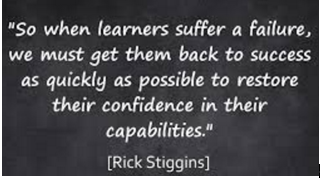
Another focus that is also worth looking into as an educator is the disposition of the students. Remember that a part of a good assessment is having learning objectives that target different aspects of students learning namely cognitive, affective and behavioral objectives. With this, sometimes it cannot be avoided that the students will fail during the education years. As educators then, we also have a responsibility to prepare them and help them deal with failures and mistakes. Traditionally, with the kinds of assessment before, how students deal with failure is very negative. So, as educators, aside from trying to change very summative assessments which can contribute negatively on how failures are dealt with, educators should prepare students and make them realize that failure is in a fact a part of life. It should be emphasized to them that experiencing failure is but normal and that these then should be used as motivation to do better.
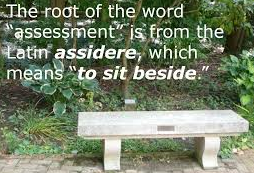
As a final thought, remember that changing what was initially accepted as methods of assessment is not that easy. There will be challenges in terms of which methods are more effective or the rubrics or methods of assessing the tasks given will present a challenge in its validity and reliability. Somewhere along the way, we may fail but what is important is we are willing to try newer methods of assessment, all for the benefit of student learning. After all, the root word of assessment is taken from the Latin word assidere which means “to sit beside.” This means we as educators have the responsibility to sit beside the learner and make sure that he learns so that he will be ready to tackle independently anything in the real world. After all, assessment is not something that educators should do to students but rather what educators can do for and with students.
References:
https://us.corwin.com/sites/default/files/upm-binaries/35150_Heritage_Formative_Assessment_Ch2.pdf
https://www.google.com.ph/#q=assessment+quotes+in+education&*
http://www.sunyorange.edu/assessmentapa/docs/AssessmentQUOTES.pdf
